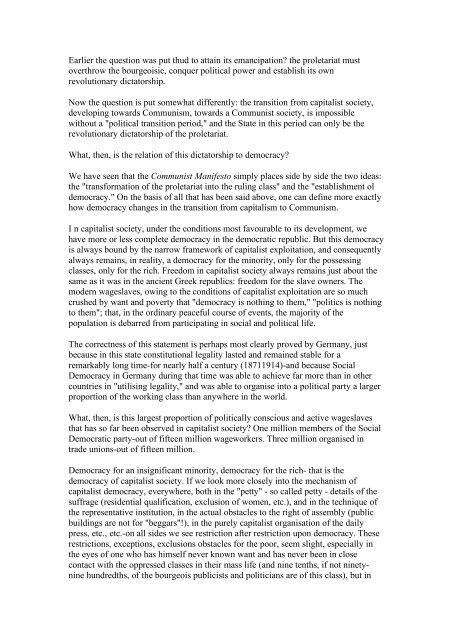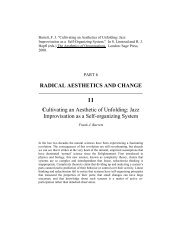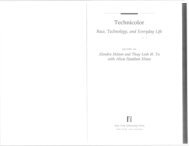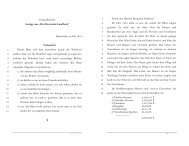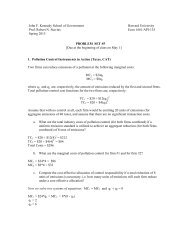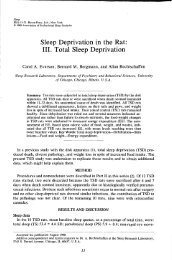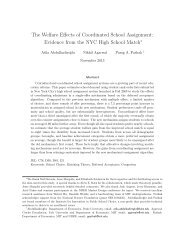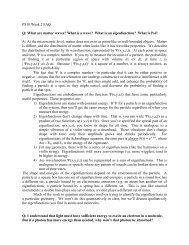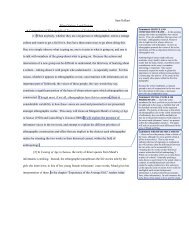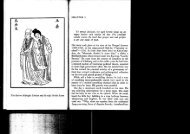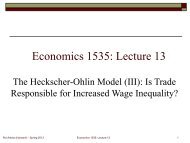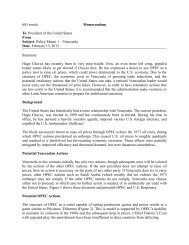Vladimir Illyich Lenin: State and Revolution, 1918 - iSites
Vladimir Illyich Lenin: State and Revolution, 1918 - iSites
Vladimir Illyich Lenin: State and Revolution, 1918 - iSites
Create successful ePaper yourself
Turn your PDF publications into a flip-book with our unique Google optimized e-Paper software.
Earlier the question was put thud to attain its emancipation? the proletariat must<br />
overthrow the bourgeoisie, conquer political power <strong>and</strong> establish its own<br />
revolutionary dictatorship.<br />
Now the question is put somewhat differently: the transition from capitalist society,<br />
developing towards Communism, towards a Communist society, is impossible<br />
without a "political transition period," <strong>and</strong> the <strong>State</strong> in this period can only be the<br />
revolutionary dictatorship of the proletariat.<br />
What, then, is the relation of this dictatorship to democracy?<br />
We have seen that the Communist Manifesto simply places side by side the two ideas:<br />
the "transformation of the proletariat into the ruling class" <strong>and</strong> the "establishment ol<br />
democracy." On the basis of all that has been said above, one can define more exactly<br />
how democracy changes in the transition from capitalism to Communism.<br />
I n capitalist society, under the conditions most favourable to its development, we<br />
have more or less complete democracy in the democratic republic. But this democracy<br />
is always bound by the narrow framework of capitalist exploitation, <strong>and</strong> consequently<br />
always remains, in reality, a democracy for the minority, only for the possessing<br />
classes, only for the rich. Freedom in capitalist society always remains just about the<br />
same as it was in the ancient Greek republics: freedom for the slave owners. The<br />
modern wageslaves, owing to the conditions of capitalist exploitation are so much<br />
crushed by want <strong>and</strong> poverty that "democracy is nothing to them," "politics is nothing<br />
to them"; that, in the ordinary peaceful course of events, the majority of the<br />
population is debarred from participating in social <strong>and</strong> political life.<br />
The correctness of this statement is perhaps most clearly proved by Germany, just<br />
because in this state constitutional legality lasted <strong>and</strong> remained stable for a<br />
remarkably long time-for nearly half a century (18711914)-<strong>and</strong> because Social<br />
Democracy in Germany during that time was able to achieve far more than in other<br />
countries in "utilising legality," <strong>and</strong> was able to organise into a political party a larger<br />
proportion of the working class than anywhere in the world.<br />
What, then, is this largest proportion of politically conscious <strong>and</strong> active wageslaves<br />
that has so far been observed in capitalist society? One million members of the Social<br />
Democratic party-out of fifteen million wageworkers. Three million organised in<br />
trade unions-out of fifteen million.<br />
Democracy for an insignificant minority, democracy for the rich- that is the<br />
democracy of capitalist society. If we look more closely into the mechanism of<br />
capitalist democracy, everywhere, both in the "petty" - so called petty - details of the<br />
suffrage (residential qualification, exclusion of women, etc.), <strong>and</strong> in the technique of<br />
the representative institution, in the actual obstacles to the right of assembly (public<br />
buildings are not for "beggars"!), in the purely capitalist organisation of the daily<br />
press, etc., etc.-on all sides we see restriction after restriction upon democracy. These<br />
restrictions, exceptions, exclusions obstacles for the poor, seem slight, especially in<br />
the eyes of one who has himself never known want <strong>and</strong> has never been in close<br />
contact with the oppressed classes in their mass life (<strong>and</strong> nine tenths, if not ninetynine<br />
hundredths, of the bourgeois publicists <strong>and</strong> politicians are of this class), but in


